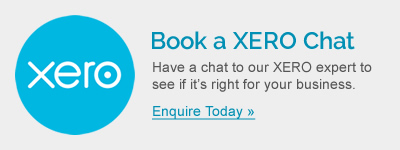Self-managed Superannuation Funds – Deductibility of Expenses
Details regarding the matters that you, as a trustee, must take into account when figuring out the deductibility of expenses of self-managed superannuation fund.
Common Fund Expenses
When determining if the fund should cover a specific expense, it’s critical to make sure the payment is:
- in line with a carefully thought-out investing plan
- authorized by your trust agreement and the super laws.
Among the several categories of fund expenses are:
- Operating expenses
- Investment-related expenses
- Tax-related expenses: those associated with income tax affairs
- Legal fees, such as modifications to trust deeds
- Statutory charges and levies
- Death, complete and permanent disability, terminal illnesses, and payments for income protection insurance
- Increased Super lump sum death benefit (also known as the anti-detriment payment)
- Collectibles and items for personal use, such artwork
When It Is Possible To Claim
Generally speaking, the trustee is entitled to reimbursement for fund expenses in the year that they are incurred. On the other hand, deductions for the decrease in value of some depreciating assets (such machinery and plants) are made over the asset’s effective life rather than at the time the trustee pays the expense.
Any invoices and receipts showing the fund’s expenses should be kept on file by the trustees. All invoices and receipts have to be issued in the SMSF’s name. The expense should be paid immediately from the fund’s bank account whenever feasible.
Deductibility of Expenses
Generally speaking, section 8-1 of the ITAA 1997’s general deduction clause governs the deductibility of expenses spent by super funds. Where a specific deduction provision is applicable, it will not apply. For instance, tax-related expenses that fall under ITAA 1997’s section 25-5 are deductible.
It can be necessary to allocate an expense if it qualifies for the general deduction provision and the fund includes members in both the accumulation and pension phases. This will establish how much the fund is allowed to deduct.
If an item is deductible under a certain deduction provision, the specific deduction provision’s language will specify whether and how the expense must be allocated.
See also:
Specific Deductions
A summary of some of the particular deduction rules that relate to SMSFs is provided below. Certain ones need to be allocated, while others can be claimed in full or in part:
- Expenses incurred to the degree that they are related to managing the SMSF’s tax affairs or meeting obligations placed on the SMSF. As an illustration, consider the SMSF Supervisory Levy (ITAA 1997, section 25-5).
- As defined by the applicable law, death, total and permanent disability, terminal illness, and income protection premiums (section 295–465) of the ITAA 1997).
- Increased amount of superannuation lump sum death benefit (or anti-detriment payment) to the extent allowed by applicable law (sections 295–485, ITAA 1997). Note: As of July 1, 2019, these payments are no longer subject to the anti-detriment deduction.
General Deductions
A super fund’s loss or outflow is deductible under section 8-1 of the ITAA 1997’s general deduction provision, barring a special deduction clause. This is the degree to which:
- money is spent in order to acquire or generate taxable revenue.
- is unavoidably incurred when operating a business in order to make or acquire assessable income.
This general deduction provision applies to expenses that are regular event of the SMSF’s operations and that generate its assessable income. This may involve costs like:
- costs for administration and management
- audit fees
- subscriptions and seminar attendance
- continuous costs associated with investments
The general deduction provision will be applied unless a particular provision might also apply and is more suitable under the circumstances.
Is Super Fund Operating a Business?
Trustees of SMSFs are obligated to manage the fund for the benefit of its members and their dependents in the event of the trustees’ demise, and this includes growing the fund. In that regard, the majority of SMSFs’ investing operations would not be classified as business-related activities. This is contrasted with comparable actions carried out by a trade company.
On the other hand, some SMSFs’ dealings in shares and other investments could be considered business operations. This is taking into consideration elements like the scope and execution style of the operations.
Not Included
An SMSF is not permitted to deduct a loss or outlay under the general deduction rule to the extent that:
- It is a loss or expenditure of money, or money-related money.
- It is a loss or departure of a personal or household nature.
- It is incurred in connection with earning or creating fund income that is exempt from taxation, such as current pension income.
- The fund is not allowed to deduct it according to income tax restrictions.
Multiple deductions for the same expense are not permitted. You may only deduct under the most suitable tax provision if you can claim deductions for the same expense under two or more tax rules.
Apportionment
General Deductions
If an expense qualifies for a deduction under the general deduction rule, it can only be deducted to the degree that it contributes to the fund’s assessable income.
Distinctly Identified Part
A cost may be incurred in part through the acquisition or production of assessable revenue as well as in part through the acquisition or production of non-assessable income, such as current exempt pension income. The portion of the fund to be claimed as a deduction under the general deduction provision is the one that can be distinguished and severed and is dedicated to earning or producing assessable income.
Calculating an Expense
This makes it impossible to separate many expenses into discrete, separable portions. For instance, when paying an authorized SMSF auditor to produce the fund’s annual report. This is an expense that has no specific connection to the assessable or non-assessable income of the fund.
In this scenario, the fund must fairly and reasonably estimate the portion of that expense that was incurred in generating the fund’s assessable income.
One technique cannot be prescribed for allocating a super fund’s expenditures. Taxation Ruling TR 93/17 offers several instances. It offers guidelines for what can be considered a reasonable and fair means of achieving an outcome by the Commissioner of Taxation.
Comparing Capital Expenses with Revenue
A capital expense is one that is not deductible under the general deduction provision when it comes to creating or making long-term modifications to a super fund’s structure or operation. The establishment of an SMSF, for instance, entails capital costs. A capital asset’s acquisition costs are typically also capital in nature. See the example under “Amendments to Trust Deeds.”
However, if an expense is made to make changes to the fund’s daily operations or internal organization, it is not regarded as capital in nature as long as the adjustments do not produce a long-term benefit. Super funds that operate businesses may be able to claim a deduction for some capital costs under section 40-880 of the ITAA 1997, which is the specific deduction provision.
The ITAA 1997’s Section 8-1 prohibits deductions for capital, private, or domestic expenses, as well as expenses incurred in generating or acquiring exempt income.




